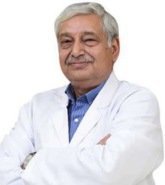Best Gallbladder Cancer Doctors in Delhi
Choosing the best gallbladder cancer doctors in Delhi is a critical step in ensuring effective treatment. Delhi is a top destination for patients seeking expert care, as it hosts some of the best gallbladder cancer doctors in India. These specialists are known for using the latest medical technologies, including robotic-assisted surgeries, advanced imaging, and personalized cancer therapies.
With affordable treatment costs, high success rates, and world-class infrastructure, Delhi has become a trusted choice for both Indian and international patients facing gallbladder cancer.

Dr. Surender Kumar Dabas

Dr. Subhash Gupta

Dr. (Col) V.P. Singh

Dr. Sanjeev Kumar

Dr. Pradeep Jain

Dr. S Hukku

Dr. Sharan Choudhri

Dr. Rudra Prasad Acharya

Dr. Amit Kumar Singhal

Dr. Rajender Kumar

Dr. Chandragouda Dodagoudar

Dr. Vineet Govinda Gupta

Dr. Pankaj Kumar Pande

Dr. Durgatosh Pandey
Finding the Best Gallbladder Cancer Doctors in Delhi – A Complete Guide
A gallbladder cancer diagnosis can be a life-altering event, but timely and expert care makes a huge difference. Delhi is home to some of the GI cancer doctors and leading gallbladder cancer specialists in India, who are part of multidisciplinary teams across reputed hospitals such as AIIMS, Medanta, Fortis, and Max Healthcare.
Which Specialists Treat Gallbladder Cancer?
- Gastrointestinal Surgical Oncologist – Performs procedures like gallbladder removal (cholecystectomy), liver resections, and lymph node dissections.
- Medical Oncologist – Provides chemotherapy, immunotherapy, and targeted drug treatments.
- Interventional Radiologist – May help with diagnostic biopsies or palliative procedures.
- Palliative Care Experts – Focus on symptom management and quality of life in advanced stages.
Tips for Choosing the Right Gallbladder Cancer Doctor in Delhi
- Check if the doctor specializes in HPB (Hepato-Pancreato-Biliary) cancers.
- Prefer doctors affiliated with hospitals that have full cancer care units (radiology, nuclear medicine, ICU).
- Look for board-certified oncologists or those with international fellowships.
- Seek out hospitals with NABH/JCI accreditation for safety and quality standards.
- Ask about availability of second opinions, virtual consults, and multi-specialty case reviews.
Technology & Treatment Options in Delhi
Delhi’s leading hospitals are equipped with:
- Robotic-assisted surgery platforms
- Advanced PET-CT and MRCP imaging
- Genomic profiling and precision oncology
- Clinical trials for targeted therapies
Patients can expect personalized treatment plans based on staging, comorbidities, and molecular tumor profiles. Delhi has reported encouraging survival outcomes for early-stage gallbladder cancer because it has some of the top gallbladder cancer specialists in India.
International & Domestic Accessibility
- Affordable gallbladder cancer treatment cost in India compared to the US/UK
- Delhi hospitals offer translation services and visa assistance
- Short waiting times and 24×7 support teams for international patients
FAQs
Q1. Are second opinions or remote consultations available?
Yes — many best gallbladder cancer doctors in Delhi offer second opinions and video consultations, especially for patients who are from other cities or even abroad. Some hospitals also make it easy to upload your medical records online for a complete evaluation.
Q2. What are the latest treatment options for gallbladder cancer in Delhi?
Delhi is a hub for advanced and innovative treatments, offering robotic HPB surgery, palliative stenting, molecular-targeted chemotherapy, and immunotherapy for advanced cases. The city’s hospitals are also involved in numerous clinical trials, allowing patients to access cutting-edge options.
Q3. What type of doctor treats gallbladder cancer?
Gallbladder cancer care usually involves a team of experts. Gastrointestinal surgical oncologists perform the operations, while medical oncologists oversee chemotherapy and follow-up care. Radiologists may aid in imaging and further interventions when needed. One must always choose the top gallbladder cancer specialist to get their treatment done.
Q4. What are the survival rates for gallbladder cancer in India?
Survival largely depends on the stage at the time of diagnosis. For early-stage (stage I–II) gallbladder cancer, the 5-year survival rate can be as high as 60–80%. In advanced cases, the rate drops — but new treatments, like immunotherapy, are helping improve outcomes.
You May Be Also Interested In









